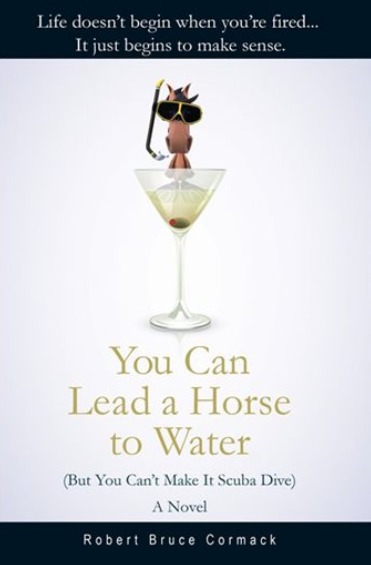Here's the Thing About Loneliness—It Ain't Really Loneliness.
You're just scared by the thought of it.

“Maybe ever’body in the whole damn world is scared of each other.” John Steinbeck, Of Mice and Men
When Charles Bukowski confessed he’d “never been lonely,” it’s hard to imagine him being any other way. Growing up, he was an outsider, a brawler with bad acne and an even worse attitude. He was always worrying about not getting laid, and the fact that most lonely people don’t get laid, and if you worry about it all the time you usually won’t get laid.
“I went four years without any sex,” he wrote. “I got used to it. I got stronger. I didn’t expect some beautiful blonde to come here and give me a fuck-job, rub my balls and I’d feel good.”
All you needed was a plausible reason for being alone, and the good sense to realize you could rub your own balls. Bukowski somehow turned it into high art.
Well, few of us expect a beautiful blonde to rub anything, but Bukowski decided it was okay. In fact, loneliness was okay. All you needed was a plausible reason for being alone, and the good sense to realize you can rub your own balls. Bukowski somehow turned it into high art.
In his mind, all those people saying, “Wow, it’s Friday night, what are we going to do?” were just begging to be frustrated, humiliated and rejected. “There’s nothing out there,” he wrote. “It’s stupidity. Stupid people mingling with stupid people. Let them stupidify themselves. I’ve never been bothered with the need to rush out into the night. I hid in bars because I didn’t want to hide in factories.”
Well, that’s true Bukowski all the way. When popularity and success came, he had beautiful blondes, and not so beautiful blondes, and his overall impression of loneliness stayed the same. “I didn’t fear it,” he wrote. “I could leave those parties any time. I was always happy with my own company. I like myself. I’m the best form of entertainment I have.”
Brave words, but there’s another side to loneliness. It’s easy to say people are stupidifying. They failed us, so they aren’t worth the time or trouble. That’s where loneliness becomes our best drinking buddy. Bukowski knew that better than most. He was an alcoholic.
“Let me tell you,” Jodi Picoult, author of “My Sister’s Keeper” wrote, “if you meet a loner, no matter what they tell you, it’s not because they enjoy solitude. It’s because they have tried to blend into the world before, and people continue to disappoint them.”
Was Bukowski really that disappointed? Or was he handling fear the way most of us do? Maybe we don’t gain strength as much as acceptance. If we’re sitting alone with a book on a Friday night, it’s acceptance.
By comparison, we’re only a phone call, a text, or a walk down the street away from companionship.
Think back to the Wild West when cowboys wandered the range. They might be hundreds of miles from civilization with only their horses for comfort. It was a bitch. Even your horse knew it was a bitch. Staying out there for weeks — or months on end — made even horses suicidal.
By comparison, we’re only a phone call, a text, or a walk down the street away from companionship. If we choose not to call, text or visit someone, we can’t blame it on loneliness. That’s like blaming starvation on not going to the fridge. You made a choice, not the fridge.
Having said that, we can’t always choose what makes us lonely. Sometimes the loneliest you’ll ever be is surrounded people. I felt that in my last marriage. There I was with a wife, a stepdaughter, new circle of friends, yet I was lonely. Didn’t I marry so that wouldn’t happen?
I remember asking my psychiatrist the same question. “When I married,” I told him, “I was saying I don’t want to be lonely anymore. What’s the point if I still am? I feel like I got gipped.”
But then loneliness becomes your best drinking buddy. I didn’t want to be an alcoholic.
“As far as being “gipped” goes,” he said, “you either live with it, or you get out.” Even that doesn’t guarantee anything. For me, I got out, but I was back where I started. I was lonely.
I could’ve adopted a positive attitude like Bukowski saying, “I’m fine being with myself. I’m stronger for the experience.” But then loneliness becomes your best drinking buddy. I didn’t want to be an alcoholic.
This is where being scared comes in. We’re all scared of loneliness, even when we come to terms with it. We figure, like most things, we can live with it, accept it, maybe even write a book about it.
It’s interesting that in Bukowski’s “Women,” he made great forays into socializing with women, sometimes successful, other times complete failures. He even writes at one point: “Being alone never felt right. Sometimes it felt good, but it never felt right.” Yet for all his social ups and downs, and “never feeling right,” he somehow managed to face his fear.
At the end of the book, he finds a cat outside, a big “tom” as he puts it. The cat comes up and rubs against his leg. The cat isn’t scared at all. “I was a good guy and he knew it,” Bukowski wrote as the cat followed him inside.
Despite the loneliness — or the fear of loneliness — Bukowski ends up feeling reasonably positive. Maybe it’s the cat, maybe it’s him. One or the other, it brought some form of reinforcement — as long as you looked for it.
People put their faith in other people every day. As my psychiatrist pointed out, “You won’t find anything if it isn’t in yourself first.
The greatest danger is putting that responsibility on someone else. Possibly I did that with my marriage. That was a mistake. Yet I wasn’t the only one. People put their faith in other people every day. As my psychiatrist pointed out, “You won’t find anything if it isn’t in yourself first.”
Janet Fitch, author of “White Oleander” put it like this: “If you expect to find people who will understand you, you will grow murderous with disappointment.” At the same time, the universe does offer understanding.
Bukowski found it in the cat. Cats know good people from bad. All animals have that sixth sense. I remember a friend telling me she only dated guys who got along with her cat. It was a very friendly cat, probably too friendly — and possibly too forgiving. If that cat still hated you, forget it.
For most of us, though, what we think is loneliness comes and goes. We aren’t committed to it. It’s fine for Steinbeck to say, “All great and precious things are lonely.” It’s a good line, and “East of Eden” is full of good lines, but that’s putting poetry ahead of purpose.
We have the internet, Amazon, Netflix. All these things can keep loneliness at bay. What they won’t do is make loneliness go away.
Our purpose — for most of us, anyway — is to keep loneliness at bay, or at least allow the monsters limited use of our homes. We have our distractions. We have the internet, Amazon, Netflix. All these things can keep loneliness at bay. What they won’t do is make the feeling of loneliness go away.
It’s possible nothing will make it go away completely. Maybe some day we’ll have 3D technology where gorgeous blondes will rub our balls. Bukowski would have liked that. Most of us probably wouldn’t.
As much as people can be a disappointment to us, we’re no better. We probably disappoint our friends left and right. Forgiving them is pretty much the same as forgiving ourselves. You have to start somewhere.
If that seems too hard, or too ominous, the alternative is to draw back, thinking our independence is worth more than our forgiveness. Lots of people think this way. Independence is the next best drinking buddy to loneliness. You’d be surprised how many independent people are alcoholics.
Alcoholics are lonely creatures by nature. So are people who prefer the “itch of solitude,” as Bukowski called it. Like him, they think they’re stronger for being alone. Hell, so does the alcoholic.
Balzac said, “We don’t know solitude until someone tells us it’s solitude.”
There’s nothing wrong with solitude, as long as we know what solitude is — and isn’t. Balzac said, “We don’t know solitude until someone tells us it’s solitude.” There’s some truth in that. I think solitude is our time in the penalty box. We can sit blaming referee, or we wait to get back on the ice.
The difference is what we want to do. If lonely suits you, fine. If getting back on the ice suits you, that’s fine, too.
Just accept your decision, like Bukowski accepted the fact that no gorgeous blonde was going to rub his balls. He could live with that. We can live with lots of things, too. Just remember Bukowski ended up with a cat.
Do you want to end up with a cat?
The choice is yours. Actually, it’s the cat’s, too.
Robert Cormack is a novelist, journalist and blogger. His first novel “You Can Lead a Horse to Water (But You Can’t Make It Scuba Dive)” is available online and at most major bookstores. Check out Skyhorse Press or Simon&Schusterfor more details.

Articles from Robert Cormack
View blog
Is “Succession” explaining Russia's leader better than the media? · “In modern war, you will die lik ...

In honour of Women's Day, let's see which is more offensive. · “Life is tough, darling, and we’d bet ...

A short story about winning, losing and small engine repair. · “A man is not finished when he’s defe ...
Related professionals
You may be interested in these jobs
-
server - food and beverage services
Found in: Talent CA 2 C2 - 3 days ago
Saratoga Restaurant Edmonton, CanadaEducation: · Expérience: · Education · Secondary (high) school graduation certificate · Tasks · Address customers' complaints or concerns · Present bills to customers and accept payment in cash, credit or debit cards, travellers cheques or room billings · Describe menu items in ...
-

Superviseur de la production – quart de soir – région de Lachute
Found in: Talent CA C2 - 5 days ago
Quantum Blainville, Canada PermanentPoste : superviseur de la production · Lieu de travail : Lachute · Quart de travail : soir · Vous aimez l'amélioration continue et vous êtes à l'aise avec les KPI ? Vous détenez un leadership mobilisateur, vous avez de bonnes aptitudes en communication et vous êtes à l'aise aut ...
-
Analystes programmeurs ETL en télétravail
Found in: Talent CA C2 - 3 days ago
SEGULA Technologies Montreal, Canada Full timeDescription de l'entreprise · Accélérez votre carrière au sein d'un groupe d'ingénierie mondial en pleine croissance. Chez SEGULA Technologies, vous travaillerez sur des projets passionnants et contribuerez à façonner l'avenir d'une entreprise où l'innovation va de pair avec l'i ...



Comments
Robert Cormack
4 years ago #4
Yes, Jerry, I try to keep death out of the equation until I absolutely need it. Thanks for reading.
Robert Cormack
4 years ago #3
Jerry Fletcher
4 years ago #2
Ian Weinberg
4 years ago #1